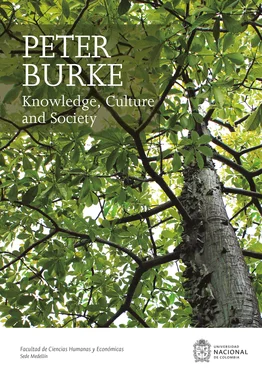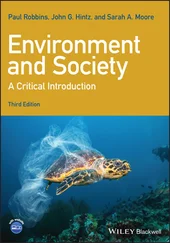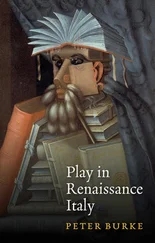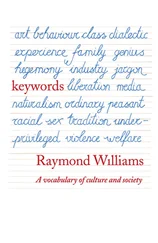To conclude, I will say something daring: each knowledge system is a fiction, a cognitive apparatus that mediates and builds our experience. As François Hartog points out, quoting Braudel, we are, more or less, prisoners of “the inertia of disciplines, the routines of schools and the weight of institutions”: “it frequently happens that, under the influence of rich and strong traditions, an entire generation traverses, without participating, the time of an intellectual revolution”. 67Although we, historians, are aware that history is a narrative, a text and a representation of the past (even Von Ranke, Droysen and other 19th century historians said so in their time), it is also clear that the texts we produce refer to actions, concrete events, experiences lived by people; to their pain, their joy, their “real world”. Hence the importance of an analysis of appropriation and circulation, also in the wide social world, of the objects of knowledge, let’s call them that, and of the perceptions about people who produce them, the authors, since it is to the extent that they are able to impose themselves to the social group, that they are recognized and accomplish the performative purposes of all rationalist discourse (Weber, Elias, Bourdieu), by imposing certain ways to classify and organize experience (Durkheim, Cassirer, Sperber, Eliade 68).
As Bourdieu already said, “realities” are constituted by the revelation and construction power that discourses exert. And I would add: and symbolic practices and, therefore, representations and the constant fighting game in which they inhabit the social world, with their creative strength, that in other fields has been called, by this and other authors, the symbolic power, the symbolic efficiency or the formative and performative capability of symbolic structures (Marx, Cassirer, Turner, Geertz, Schneider, Eliade, Durand, Starovinski, Baczko, Delacampagne…).
Let’s simplify this reflection to the limit: on one hand, A) the communities, in their social world have PRACTICAL FUNCTIONS, with which they create PRACTICAL CLASSIFICATIONS that generate SOCIAL EFFECTS; on the other hand, B) in this social (or cultural, if you prefer that term) and dialectic game between practices and representations, PRACTICAL REPRESENTATIONS are generated, and it is in this interaction where the PRODUCTION OF THE OBJECTIVE REALITY takes place. It means that in the production of discourses and texts, in the classification of experience, we have, on one hand, SOCIAL PRACTICES lived by means of MENTAL REPRESENTATIONS (with language and the symbolic flow as centres), that are acts of knowledge and recognition, of perception and appropriation of the world 69, with which we build OBJECTUAL REPRESENTATIONS or SYMBOLIC OBJECTS (THINGS, emblems, flags, dialects, strategies of symbolic manipulation –powers, stigmas, prejudices, signs, codes…-) and we fabricate certain ideas about ourselves and about others, that is to say, we create representations (about ourselves an about the others) and differentiation processes.
Although it’s not my purpose, we could also take a little ex-cursus through the contemporary academic world, through the knowledge that the West considers THE KNOWLEDGE, in order to realize that the field is governed by parameters alien to the production of knowledge itself, with which epistemology was so deeply concerned, and history and philosophy of science in the second half of the 20th century, 70and we have entered the logic of global capitalism in its production, with measurement indexes, bibliometrics, etc.
To conclude, all knowledge is ultimately local knowledge, and to think about the way it was conceived is also to think about culture and its production circuit, since not all cultural systems are produced within the same logic or with the same rationality principles. A situation that leaves us but one working method: to perform an understanding of understanding, to comprehend how we comprehend, in order to encompass the diverse systems of interpretation, which is the HERMENEUTICAL TASK (Gadamer, Ricœur, Koselleck): describe (thick description), evaluate/interpret, translate/understand (Steiner), practice criticism, show the internal logic.
As previously stated, thought is organized by the symbolic structures in which it is immersed, and it’s only later that it gets particularised or made individual; adding to that the fact that symbolic contents are of a socially differentiated nature and, partly, of an ambiguous quality, so that cultural analysis continues to depend, partially, on the field in which it is practiced, the circuit of culture production and the rationality that constitutes certain human group; the set of rules that governs them (institutions), and the ways in which they are produced, circulate and are appropriated: practices, representations, knowledge and discourses, discourses that materialize in texts, oral and written, in works, behaviours, laws…
This also leads us to a reflection by Chartier, useful for the young, who can re-think the way they work and analyse. We, the older ones, have the paths open by our own practice through the years:
Works… don’t have a stable, universal, fixed sense. […] Produced in a specific sphere, the artistic and intellectual field with its rules, conventions, and hierarchies, works escape and acquire density by traveling, sometimes for long periods, throughout the social world. Deciphered by means of the affective and mental schemes that constitute “culture” itself (in the anthropological sense) of the receiving communities, works take, in reciprocity, a precious source to reflect upon the essential: namely, the construction of the social bond, the awareness of subjectivity, the relationship with the sacred. 71
To conclude, I apologise for citing again in extenso a fragment of José Lorite Mena’s book Sociedades sin Estado. El Pensamiento de los Otros, which refers to the way of thinking of those societies and cultures that don’t have a privileged place in the international landscape and to the difficulties in understanding what the relationship between both sides of the equation may bring:
On a first general level, phenomenic and immediate, intercultural differences display a systemic dissymmetry that fractures mutual interpretations. We’re talking about irreducible “epistemological profiles” (G. Bachelard). […] Inter-culturally, the homogeneity of categories is a mere appearance or a nominalist resource: it is the denial of culture as a concrete and functional practice of a world. Hence the considerable difficulty to think two cultures together, with same time and meaning: there is an endless drift of imponderabilia in the categorical adjustment. It is necessary to accept that, when categories are compared, it’s not about isolations of a particular element – which would allow for transversal universalisations- but about concentrations of the whole, of concrete universals. 72
With this last idea, it is interesting to return to the referenced works of Professor Burke and to his emphasis on what we might call the historicity of language. 73In this reflection about the character of symbolism in our society and the legacy of the Enlightenment, which leads us to disqualify other-knowledge (non-Western knowledge), it is easy to point at views and findings of conceptual history and political languages that aim towards the difficulties of the translation and circulation of concepts; 74also an interesting topic, and to a certain degree a trend in intellectual history studies; one that, to a more general extent, results in an unavoidable mention of George Steiner…The language variable takes us back to the most classical antecedents of German cultural analysis in the 18th and 19th centuries, when, along with figures like Herder, Dilthey and Boas, the idea of universal abstraction was questioned…Professor Burke, in his analysis of cultural history, takes again contributions from the classical Kulturgeschichte and invites us to think of a way of making history outside the classical debate of the closed concept of “culture”, starting instead “[…] from a wide notion of culture, not restricted to the field of cultural products and which implies an interdisciplinary work from multiple perspectives of history”. 75
Читать дальше












